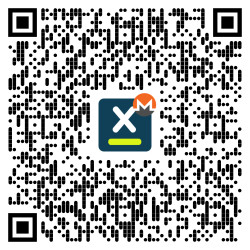This project has the following purpose: even if DIVA consists of several independent modules, it still should be easy to have the complete environment available.
Online Demo and Test sites:
- https://testnet.diva.exchange - The public DIVA testnet. Everybody can join.
Basically there are two options: either join an existing network or create your own.
To start with, it is recommended to join the existing DIVA test network. The test network can be explored on https://testnet.diva.exchange.
IMPORTANT: Make sure you have Docker Compose installed. Check your Docker Compose installation by executing docker compose version in a terminal.
If you don't have a github account, create one on github.com. Fork the project to your own github repository.
Then clone the code repository:
git clone https://github.com/YOUR-GITHUB-USERNAME/diva-dockerized.git
cd diva-dockerized
npm i
Now, either build your own local testnet or join the existing DIVA testnet.
To join the DIVA test network, build a local docker compose file first. This is an automated process. Here is an example on how to join the DIVA test network via I2P (it will ask for the root password, since it has to access the docker daemon and this access needs elevated privileges):
DIVA_TESTNET=1 bin/build.sh
After building the docker compose file, the containers can be started:
DIVA_TESTNET=1 bin/start.sh
The webconsoles of I2P are running within your local docker containers. Check them using http://127.19.72.11:7070/ and http://127.19.72.12:7070/. These two URL's are assuming that the default configuration is used. If you changed the IP config (see below, environment variable HOST_BASE_IP), you have to adapt the URL's because the docker container will run on different IP's.
Now please visit http://127.19.72.200:3920 (the explorer). Refresh it from time to time to see whether your local chain syncronizes with the diva testnet. Sooner or later (like 10 minutes) it should be the same as here https://testnet.diva.exchange.
If you are joining the network for the very first time, it will take a longer while (maybe even up to 20 minutes) until you have a stable I2P network available. Please be patient. Check the logs of divachain, docker logs n1.chain.join.testnet.diva.i2p, to see whether it synchronizes. If it does not synchronize properly restart it (see Troubleshooting below).
- Explore the local docker environment, using
docker ps -a. - Check the logs, using
docker logs n1.chain.join.testnet.diva.i2p - If synchronization is not working properly (like the very first time), try to restart the chain after a few minutes:
docker restart n1.chain.join.testnet.diva.i2p - Access local explorer, http://127.19.72.200:3920 (URL as set in default config, see HOST_BASE_IP)
- Access local I2P webconsole, http://127.19.72.11:7070/ and http://127.19.72.12:7070/ (URL as set in default config)
To stop locally running DIVA Test Network containers, execute:
DIVA_TESTNET=1 bin/halt.sh
To restart the locally running DIVA Test Network containers, execute:
BASE_DOMAIN=join.testnet.diva.i2p bin/restart.sh
This restarts the complete stack (I2P, divachain, protocol).
Warning This deletes all your local diva data within the folder build/domains/join.testnet.diva.i2p (keys, blockchain data).
To purge local testnet data, execute:
DIVA_TESTNET=1 bin/purge.sh
tbd.
To create an I2P-based DIVA test network, build a local docker compose file first. This is an automated process. Here is an example:
BASE_IP=172.19.73. HOST_BASE_IP=127.19.73. BASE_DOMAIN=testnet.local bin/build.sh
After building the docker compose file, the containers can be started:
BASE_DOMAIN=testnet.local bin/start.sh
It is now possible to explore the local docker environment using docker commands, like docker ps -a.
To stop locally running DIVA Test Network containers, execute:
BASE_DOMAIN=testnet.local bin/halt.sh
Warning This deletes all your local DIVA data within the folder build/domains/testnet.local (keys, blockchain data).
To purge all local data, execute:
BASE_DOMAIN=testnet.local bin/purge.sh
It is possible to specify docker images to build the .yml file used by docker compose. Use the environment variables IMAGE_I2P, IMAGE_CHAIN, IMAGE_PROTOCOL and IMAGE_EXPLORER to pass specific image names to the build process. Here is an example:
DIVA_TESTNET=1 LOG_LEVEL=trace IMAGE_CHAIN=divax/divachain:develop bin/build.sh
This will build a .yml file using a specific docker image as divachain.
Boolean: 1 (true) or 0
Default: 0
String: network entrypoint (bootstrap)
Default: (empty)
Integer, >=7, <=15
Default: 7
String: valid domain name
Default: testnet.diva.i2p
String: valid local base IP, like 127.19.72. Used to map the docker containers to the host.
Default: 127.19.72.
String: valid local base IP, like 172.19.72. Used as IP's for docker containers.
Default: 172.19.72.
Integer: >1024, <48000
Default: 17468
Boolean: 1 (true) or 0
Default: 1
Boolean: 1 (true) or 0
Default: 1
String: production, development
Default: production
Logging level of NodeJS applications, like divachain
String: trace, info, warn, error, critical
Default: info
Boolean: 1 (true) or 0
Default: 0
Logging level of I2P
String: debug, info, warn, error, none
Default: none
Contributions are very welcome. This is the general workflow:
- Fork from https://github.com/diva-exchange/diva-dockerized/
- Pull the forked project to your local developer environment
- Make your changes, test, commit and push them
- Create a new pull request on github.com
It is strongly recommended to sign your commits: https://docs.github.com/en/authentication/managing-commit-signature-verification/telling-git-about-your-signing-key
If you have questions, please just contact us (see below).
Your donation goes entirely to the project. Your donation makes the development of DIVA.EXCHANGE faster. Thanks a lot.
42QLvHvkc9bahHadQfEzuJJx4ZHnGhQzBXa8C9H3c472diEvVRzevwpN7VAUpCPePCiDhehH4BAWh8kYicoSxpusMmhfwgx
or via https://www.diva.exchange/en/join-in/
3Ebuzhsbs6DrUQuwvMu722LhD8cNfhG1gs
On DIVA.EXCHANGE you'll find various options to get in touch with the team.
Talk to us via Telegram (English or German).

